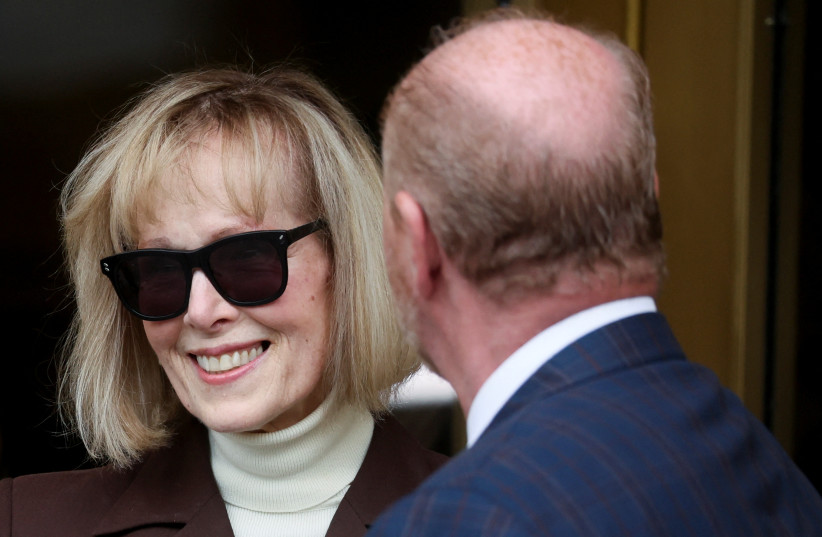Donald Trump cannot assert presidential immunity from a defamation lawsuit by writer E. Jean Carroll, who accused him of rape, a US appeals court ruled on Wednesday, dealing the former US president another legal setback.
The 2nd US Circuit Court of Appeals in Manhattan upheld a federal judge's decision to reject Trump's claim of immunity, finding Trump had waited too long to raise it as a defense.
Alina Habba, one of Trump's lawyers in the case, called the ruling "fundamentally flawed" and said Trump would seek "immediate review" from the Supreme Court.
Carroll in the lawsuit sought at least $10 million in damages from Trump over comments he made in June 2019, when he was president, after she first publicly accused him of raping her in a Manhattan department store dressing room in the mid-1990s. Trump denied knowing Carroll, said she was not his "type," and that she made up the rape claim to promote her upcoming memoir.
The former Elle magazine columnist sued in November 2019, but Trump waited until December 2022 before asserting that absolute presidential immunity shielded him from her lawsuit. Under this, a president has complete immunity from many types of civil lawsuits while in office.

"A three-year-delay is more than enough," court says
In June, US District Judge Lewis Kaplan in Manhattan rejected Trump's bid to dismiss Carroll's case and later refused to let Trump raise an immunity defense, citing the delay in seeking to invoke it and the public interest in accountability.
The 2nd Circuit on Wednesday said those decisions were correct.
"A three-year-delay is more than enough, under our precedents, to qualify as 'undue,'" a three-judge panel wrote in its opinion.
Trump's appeal was heard on an expedited basis, ahead of a scheduled Jan. 16, 2024, trial.
He has pursued a similar immunity defense in his federal criminal case in Washington in which he is accused of unlawfully trying to overturn his loss in the 2020 presidential election.
Carroll has already won one civil trial against Trump. In May, a jury in a second lawsuit awarded her $5 million for sexual assault and defamation after Trump last October again denied her accusations. Trump is appealing that verdict.
On Sept. 6, Kaplan ruled that the jury's findings in May applied to Carroll's first lawsuit, making Trump's denial defamatory. That left for trial only the issue of how much money Trump should pay Carroll in damages.
"We are pleased that the Second Circuit affirmed Judge Kaplan's rulings and that we can now move forward with trial," Carroll's lawyer Roberta Kaplan said in a statement.
Trump is the frontrunner for the Republican nomination to challenge Democratic President Joe Biden in the 2024 US election despite facing four federal and state criminal indictments. He has pleaded not guilty in those cases.
The case is Carroll v. Trump, 2nd US Circuit Court of Appeals, Nos. 23-1045 and 23-1146.
